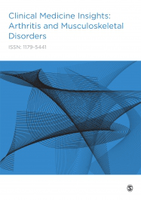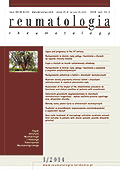
Lupus Science & Medicine
Scope & Guideline
Pioneering insights into lupus and autoimmune diseases.
Introduction
Aims and Scopes
- Research on systemic lupus erythematosus (SLE) pathogenesis:
The journal emphasizes studies exploring the underlying mechanisms of SLE, including genetic, immunological, and environmental factors that contribute to disease onset and progression. - Clinical management and treatment strategies:
Articles often focus on novel and established therapeutic approaches, including the efficacy and safety of biologic therapies, corticosteroids, and immunosuppressants, as well as personalized medicine in treating SLE. - Quality of life and psychosocial aspects:
Research addressing the impact of SLE on patients' quality of life, psychological well-being, and the effectiveness of interventions aimed at improving patient outcomes is a core focus area. - Epidemiology and health services research:
The journal publishes studies investigating the epidemiology of SLE, including incidence and prevalence rates, as well as health services utilization and patient care pathways. - Innovative diagnostic and monitoring techniques:
There is a strong emphasis on the development and validation of biomarkers, imaging techniques, and patient-reported outcomes to improve disease monitoring and management.
Trending and Emerging
- Integration of machine learning and big data:
There is an increasing trend towards utilizing machine learning techniques and big data analytics to understand disease patterns, predict outcomes, and personalize treatment strategies for patients with SLE. - Real-world evidence and observational studies:
Recent publications emphasize the importance of real-world data in understanding treatment effectiveness, patient adherence, and long-term outcomes, moving beyond traditional clinical trial settings. - Impact of COVID-19 on SLE management:
Given the global pandemic, there is a significant focus on the implications of COVID-19 for patients with lupus, including vaccination responses, disease flares, and management strategies during the pandemic. - Psychosocial determinants of health:
Emerging research highlights the role of psychosocial factors such as mental health, social support, and patient education in managing SLE, indicating a shift towards a more holistic approach to treatment. - Exploration of comorbidities and their management:
There is a growing interest in understanding the interplay between SLE and other comorbid conditions, such as cardiovascular disease and infections, to optimize patient management and improve outcomes.
Declining or Waning
- Focus on traditional immunosuppressant therapies:
As newer biologics and targeted therapies gain prominence, the emphasis on older immunosuppressive agents such as azathioprine and cyclophosphamide has decreased, reflecting a shift towards more innovative treatment modalities. - Basic science studies with limited clinical applicability:
Research that delves deeply into basic immunology without direct clinical implications or applications is becoming less prevalent, as the journal increasingly prioritizes studies with clear translational value. - Generalized epidemiological studies without localized context:
While epidemiological research remains important, there is a waning interest in broad studies that do not address specific populations or localized health concerns, as nuanced insights into diverse patient cohorts are prioritized. - Complications related to rare manifestations of lupus:
Papers focusing on extremely rare or unusual manifestations of systemic lupus erythematosus are becoming less common, as the journal shifts towards more prevalent and impactful aspects of the disease.
Similar Journals

LUPUS
Unveiling breakthroughs in the study of lupus and rheumatology.LUPUS is a premier peer-reviewed journal published by SAGE Publications Ltd, focusing on the field of rheumatology, with a specific emphasis on the complexities of lupus and related autoimmune disorders. Since its inception in 1991, the journal has consistently ranked in the Q2 category within the rheumatology field, currently positioned as #29 out of 73 in Scopus, reflecting its significant contributions to research and clinical practice. The journal aims to foster a deeper understanding of lupus through the publication of original research articles, reviews, and clinical studies, making it an essential resource for researchers, clinicians, and students dedicated to advancing knowledge in this vital area of medicine. With an impact factor that underscores its influence, LUPUS serves as a critical platform for sharing innovative findings and engaging discussions within the global scientific community. Although the journal follows a traditional access model, it is situated in the United Kingdom, at 1 Olivers Yard, 55 City Road, London EC1Y 1SP, England, and remains dedicated to supporting the continuous advancement of research in autoimmune diseases.

Current Rheumatology Reviews
Pioneering insights for modern rheumatology.Current Rheumatology Reviews is an esteemed journal dedicated to publishing comprehensive reviews on advancements in the field of rheumatology. Established by Bentham Science Publishers, this journal has become a vital resource for researchers, clinicians, and students seeking to stay abreast of the latest developments and therapeutic strategies from 2006 to 2024. Located in the United Arab Emirates, it caters to a global audience, delivering insights that have been pivotal in shaping clinical practices. With an impact factor reflective of its Q3 status in Rheumatology by 2023, the journal ranks #46 out of 73 in the Scopus database, positioning it in the 37th percentile in the discipline. Although it operates without open access, its high-quality content ensures that each article undergoes rigorous peer review, making the Current Rheumatology Reviews a trusted platform for disseminating critical research findings and reviews that drive forward the understanding and treatment of rheumatic diseases.

Clinical Medicine Insights-Arthritis and Musculoskeletal Disorders
Championing knowledge in arthritis and immunological disorders.Clinical Medicine Insights-Arthritis and Musculoskeletal Disorders, published by SAGE PUBLICATIONS LTD, is an esteemed open-access journal dedicated to advancing knowledge in the field of rheumatology and related immunological disorders. Since its inception in 2008, the journal has provided a platform for researchers and clinicians from around the world to disseminate cutting-edge studies and insights into arthritis and musculoskeletal conditions. Based in New Zealand, this journal has maintained a commendable standing in academic circles, evidenced by its Q3 quartile rankings in both Immunology and Allergy and Rheumatology categories for 2023, alongside respectable Scopus rankings. The journal serves as a vital resource for healthcare professionals, researchers, and students, facilitating enhanced understanding and treatment of musculoskeletal disorders through high-quality research and peer-reviewed articles. With a focus on fostering interdisciplinary collaboration and innovation in the field, Clinical Medicine Insights-Arthritis and Musculoskeletal Disorders is essential reading for those committed to improving patient outcomes and advancing scientific knowledge.

RHEUMATIC DISEASE CLINICS OF NORTH AMERICA
Elevating patient care with cutting-edge insights.Rheumatic Disease Clinics of North America is a premier journal published by W B Saunders Co-Elsevier Inc, dedicated to advancing the field of rheumatology through comprehensive and impactful research. With an ISSN of 0889-857X and an E-ISSN of 1558-3163, this esteemed publication has been disseminating knowledge since its inception in 1987, and continues to guide clinicians and researchers alike through its insightful articles and case studies. Positioned in the 2023 Q2 quartile for Rheumatology, it ranks #31 out of 73 journals in the Scopus category of Medicine _ Rheumatology, reflecting a commendable impact factor and relevance in the academic community. Although it does not offer open access options, the journal ensures that subscribers have access to cutting-edge research and reviews that address contemporary challenges and advancements in rheumatic disease. With its authoritative content, Rheumatic Disease Clinics of North America serves as a vital resource for those striving to improve patient care and clinical outcomes in the ever-evolving landscape of rheumatology research.

AKTUELLE RHEUMATOLOGIE
Connecting researchers to advance the field of rheumatology.AKTUELLE RHEUMATOLOGIE is a prominent German journal published by GEORG THIEME VERLAG KG, dedicated to advancing the field of rheumatology. Since its inception in 1978, this peer-reviewed journal has been a vital resource for professionals, researchers, and students engaged in the study and treatment of rheumatic diseases. With an ISSN of 0341-051X and an E-ISSN of 1438-9940, the journal provides a platform for sharing groundbreaking research, clinical studies, and reviews. Although classified in the fourth quartile (Q4) of rheumatology journals and ranked 67 out of 73 in its category according to Scopus, AKTUELLE RHEUMATOLOGIE continues to contribute to the discourse in rheumatology. Its comprehensive coverage of recent advancements and innovative approaches makes it an essential publication for anyone interested in the latest developments in the field.

Reumatologia
Exploring innovative methodologies in rheumatic diseases.Reumatologia is a dedicated open-access journal published by TERMEDIA PUBLISHING HOUSE LTD that has been serving the global scientific community since 2005. The journal focuses on the fields of Rheumatology, Immunology, and Allergy, providing a rich platform for researchers and practitioners to share innovative findings, clinical insights, and methodologies. With its roots tracing back to the early 1960s and a steady convergence of quality content through 2024, Reumatologia has secured a place in the academic landscape, currently holding a Q4 rating in Immunology and a Q3 rating in both Immunology and Allergy and Rheumatology categories for 2023. While the journal ranks #42 out of 73 in the Medicine - Rheumatology category, its open-access model ensures that research is widely disseminated, enhancing visibility and accessibility to vital knowledge that shapes therapeutic practices. Located in Poznan, Poland, Reumatologia remains a pivotal source of credible research, fostering collaboration among academics, healthcare professionals, and students internationally.

Immunity
Connecting researchers and practitioners in immunological breakthroughs.Immunity is a premier journal published by CELL PRESS that has positioned itself at the forefront of immunological research since its inception in 1994. With its ISSN 1074-7613 and E-ISSN 1097-4180, this prestigious journal is recognized for its significant contribution to the fields of Immunology, Allergy, and Infectious Diseases, consistently achieving a Q1 ranking in these categories as per 2023 metrics. The journal is highly esteemed within the academic community, holding impressive Scopus rankings—4th out of 344 in Infectious Diseases and 3rd in both Immunology and Immunology and Allergy—placing it in the 98th percentile. Although not an Open Access journal, it provides critical insights and research developments that empower researchers, healthcare professionals, and students alike. With a commitment to advancing scientific knowledge, Immunity is crucial for those interested in understanding immune responses and their implications for health and disease.

Arthritis & Rheumatology
Advancing Knowledge in Rheumatology and ImmunologyArthritis & Rheumatology is a leading journal dedicated to the advancement of knowledge in the fields of rheumatology, immunology, and allergy. Published by WILEY in the United Kingdom, this prestigious journal boasts an impressive impact factor and a prominent reputation, ranking in the Q1 category across multiple disciplines, including Immunology and Rheumatology. With its high ranking of 4th out of 73 in Rheumatology and notable standings in related fields, it serves as a crucial platform for researchers, healthcare professionals, and scholars to disseminate groundbreaking findings. The journal embraces an Open Access model, enhancing the accessibility of vital research to a global audience and ensuring that knowledge dissemination is maximized. Since its inception in 2014, Arthritis & Rheumatology has been at the forefront of impactful research, fostering collaboration and innovation in tackling complex challenges within these medical disciplines. Researchers looking to explore the latest advancements and engage with cutting-edge studies in these fields will find this journal to be an essential resource.

Rheumatology and Therapy
Connecting researchers and clinicians for better health.Rheumatology and Therapy, published by Springer, stands as a prominent open-access journal within the fields of Immunology and Allergy and Rheumatology. Since its inception in 2014, the journal has made significant contributions to advancing the understanding, diagnosis, and treatment of rheumatic diseases, garnering a solid reputation with an impact factor that reflects its rigorous peer-review process and scholarly influence. Currently ranked in the Q2 quartile for both its categories according to 2023 metrics, it occupies a significant position among its peers, standing at Rank #21 out of 73 in Medicine Rheumatology and Rank #101 out of 233 for Medicine Immunology and Allergy. The journal's scope encompasses cutting-edge research, reviews, and clinical studies that aim to bridge the gap between laboratory findings and patient care, making it an invaluable resource for researchers, clinicians, and students alike. With its commitment to open access, Rheumatology and Therapy ensures that high-quality research is available to a global audience, fostering collaboration and innovation in rheumatology and immunology. To learn more, visit their official site and explore the wealth of knowledge available.

ImmunoTargets and Therapy
Bridging Knowledge and Therapeutic InnovationImmunoTargets and Therapy is a leading open access journal published by DOVE MEDICAL PRESS LTD, dedicated to advancing the field of immunology and its various therapeutic applications. Since its inception in 2012, the journal has rapidly become a vital resource for researchers, professionals, and students, achieving notable recognition with a Q1 ranking in both Immunology and Immunology and Allergy categories as of 2023. With an impressive Scopus ranking of #22 out of 233 in Medicine - Immunology and Allergy, and #25 out of 236 in Immunology and Microbiology, this journal maintains a 90th percentile standing in its field. ImmunoTargets and Therapy not only publishes original research articles, reviews, and clinical studies, but also fosters an inclusive platform for the dissemination of innovative findings critical to the fight against immunological disorders. Based in New Zealand, it serves a global audience, promoting knowledge exchange and collaboration through its open access model.